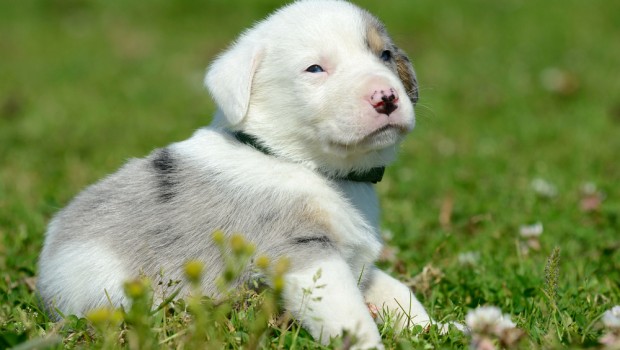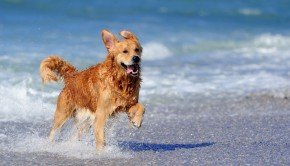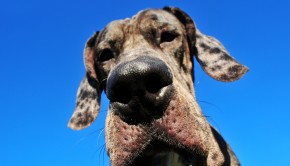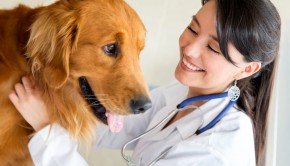Nosebleeds and The Overweight Puppy
Strange Nosebleeds During The Summertime
Is it common for a dog to get nosebleeds during the summer? I own three dogs and my Labrador Retriever always has nosebleeds whenever the temperature reaches 90° or so. It doesn’t make him sick or anything, so should I go to the veterinarian? What is causing this condition?
Yes, you should schedule an appointment with your veterinarian as soon as possible. Fortunately, summertime nosebleeds are not a very serious issue. However, it should be taken care of at the earliest convenience. The most likely culprit is that your dog has allergies to certain substances that he is inhaling.
The summer months bring plenty of pollen in the air which can cause inflammation of the nasal passages, thus causing nosebleeds. Another possibility is that your dog might be allergic to some type of plant that is in full bloom during hot weather.
The remedy to your dog’s nosebleeds can easily be treated with anti or other medications, such as corticosteroids. These treatments can be very beneficial but the best way to avoid any problems that have to do with your dog inhaling foreign substances is to avoid the allergens altogether. Work with your veterinarian to pinpoint the exact cause of the nosebleeds or other symptoms and make the extra effort to eradicate the source from your yard area.
Is Your Dog Too Fat?
Help! My dog is overweight and is only 10 months old. At his last checkup, the veterinarian said he was almost 10 pounds overweight. What should I do?
Knowing that your dog is overweight at such a young age is definitely something to be concerned about. The first thing you should do is check with your breed standard to see what your dog’s ideal weight is. The good news is that your veterinarian has already educated you about where the dog stands with his weight. At 10 pounds heavier than he should be, your dog could be classified as obese.
Your veterinarian should also prescribe a weight-loss program for your dog. Such a program would include exercise advice and dietary recommendations. There is also a special food that your dog may eat which is specifically formulated for his size and weight loss needs. Restricting certain dog foods and treats may be another consideration.
Exercise should begin immediately. Please use caution, however, as your dog may need to ease his way into vigorous activity. Most overweight dogs have a sedentary lifestyle because their owners do not take them out for daily walks or other exercise activities. Start off with a nice slow stroll on the leash a few times each day. You’d be surprised at how beneficial a simple walk with your dog can be to shedding those pounds.






